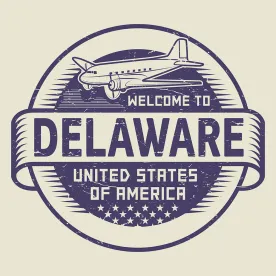Delaware has maintained a nearly 60-year death-grip on its lucrative funding source of abandoned and unclaimed property. Another finger on that grip was loosened by Delaware’s recent loss at the U.S. Supreme Court when Pennsylvania, Wisconsin, and Arkansas defeated Delaware’s claim to certain prepaid money transmission instruments after they are deemed abandoned.
The Facts: The instruments at issue were Agent Checks and Teller Checks sold under a brand name as prepaid money transmission instruments that the payee can present for payment. The unclaimed property/instrument holder escheated under the model established in Texas v. New Jersey, 379 U.S. 674 (1965). That is, the two-tiered cascading rule of rights to escheatable property, i.e., the holder is to escheat proceeds of abandoned financial products (1) “to the State of the creditor’s last known address as shown by the debtor’s books and records” when that State has an escheat custody law and, (2) if the first rule fails, “to the debtor’s State of incorporation.” Pennsylvania v. Delaware, 598 U.S. ___, slip op at 3 (2023), citing Texas, 379 U.S. at 680-682 (explaining the cascading rule and that the debtor entity holding the funds is the “holder”).
Several states asserted that the instruments were protected by a federal safe-harbor fairness rule for certain financial instruments to escheat to the purchase address arising from Congress’ recognition that often records of the address of the instrument-purchaser or the payee are not kept and that the purchase location address is kept (the Federal Disposition of Abandoned Money Order and Traveler’s Checks Act (often referred to as the “FDA”), 12 USC § 2501). The instrument holder correctly asserted that it only had to escheat the funds once, paid the amounts into court, and left the states to fight out which had the better claim.
The Decision: The case turned on whether the instruments were of the kind expressly listed in the FDA or were sufficiently “similar” to the listed instruments to receive the fairness protection of the place of purchase. The U.S. Supreme Court found that the FDA specifically enumerated instruments and used the broad word “similar” to include other instrument types that were not specifically enumerated. It reasoned that Congress enacted the fairness rule to avoid record-keeping pitfalls inherent in the instruments themselves that would enable states of incorporation to receive a windfall. The Court ruled that the instruments are sufficiently similar to listed instruments to also receive protection, escheat under the FDA, and are paid to the state of the location of the place of purchase. The Court stated: “When a financial product operates like a money order—i.e., [a prepaid instrument to transmit money to a payee] and … would escheat inequitably solely to the State of incorporation of the company holding the funds under our [Texas rule] due to recordkeeping gaps, then it is sufficiently ‘similar’ to a money order to fall presumptively within the FDA.” Pennsylvania v. Delaware, slip op. at 22.
The Takeaway: The U.S. Supreme Court many years prior explained that the Due Process Clause of the U.S. Constitution protects a holder from having to turn over funds more than one time. Intangible property is not easy to situate, became a source of friction over where to escheat, and forced the issue of needing a basic rule of escheatment that resulted in the two-tiered Texas rule defaulting to state of incorporation when owner addresses are unknown. Delaware’s very high percentage of company formation made it the inadvertent beneficiary of the U.S. Supreme Court’s two-tiered cascading Texas rule. Congress halted that unfairness as to certain financial instruments and “similar” instruments where owner address is not part of the normal record-keeping, but the company records the location of purchase. Pennsylvania v. Delaware reminds us that: (1) states hate Congressional action that limits their reach (e.g., PL 86-272); and (2) the FDA’s fairness safe harbor is interpreted broadly and may become very powerful as our modern world of payment options evolves.



 />i
/>i

